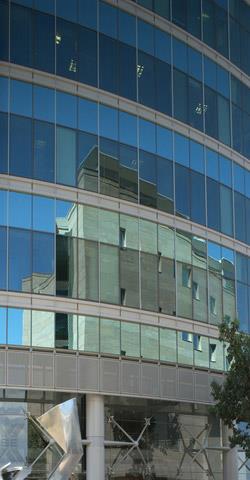South African commercial property investors will have to hold their horses for now as the party has not yet begun.

In November 2012, Growthpoint Properties Limited introduced a commercial deposit-free lease -meaning businesses no longer face the burden of large security deposits when renewing or signing new leases for offices, shops, showrooms, warehouses and factories.
For starters, the consensus among many commercial property owners is that rentals will remain at 2012 levels and the focus for many will be retaining the tenants in order to reduce vacancies.
According to economist and UCT associate Professor, Francois Viruly, with interest rates largely expected to remain constant in 2013 and most of 2014, the performance of the South African property sector will increasingly be driven by economic growth prospects, the strength of household balance sheets and fundamentals in the property market.
Read the article here.
The Rode Report on the SA Property Market revealed that it is not yet the season for property investors to be jolly, as property fundamentals continue to stutter.
Stefano Contardo developments executive at Improvon Group, a leading industrial and commercial property investment company, believes the sector will not see major changes from 2012.
He notes that the effects of rating downgrades and workers strikes will serve to counter any positive sentiment that may have been built with foreign investors resulting in an economic recovery being delayed.
“As the commercial sector (specifically industrial property – our specific focus) tends to track the economy and specifically economic growth, I don’t see a massive shift in demand.”
“That, coupled with interest rates remaining where they are, (I don’t expect an increase as the government needs to encourage spending), I don’t see much movement in rentals,” he says.
As a result, companies growing will require new premises, but due to availability of stock in the market, rentals will remain competitive keeping investment yields under pressure for at least the next year, according to Contardo.
Furthermore, Contardo points to the fact that the commercial market has been stagnant for some time and developers as well as investors seek growth and look to drive the industry.

According to economist and UCT associate Professor, Francois Viruly, with interest rates largely expected to remain constant in 2013 and most of 2014, the performance of the South African property sector will increasingly be driven by economic growth prospects, the strength of household balance sheets and fundamentals in the property market.
He says this may result in pockets of activity around certain traditional growth nodes such as Sandton, even though yields won’t necessarily be in line with required yields, but are more appealing than capitalising the holding costs.
Commercial rental deposits
In November 2012, Growthpoint Properties Limited introduced a commercial deposit-free lease.
This ‘Undeposit’ means businesses no longer face the burden of large security deposits when renewing or signing new leases for offices, shops, showrooms, warehouses and factories.
Growthpoint is the largest South African listed property company and is included in the Johannesburg Stock Exchange ALSI Top 40 Companies Index.
It owns and manages a quality portfolio of over 400 properties in South Africa providing nearly 4.5 million square metres of retail, office and industrial space to leading businesses across the country.
This also means Growthpoint could potentially release around R350 million of lease deposits it currently holds to boost South African business over the next five years.
Click here for more information.
Walter Kruger of Growthpoint Properties explains that the idea of the deposit free lease ‘Undeposit’ was conceived in 2009.
The statistical data of Growthpoint's tenant profile allowed the business to look at alternatives and bring a new concept to the property industry.”
“By giving back existing deposits to our clients it affords our clients the ability to utilise this cash as working capital or additional cashflow in their business and generate a better return on this money than a landlord can offer.”
He says following the 2009 financial crisis, the economy is struggling to recover to previous levels, and the timing of the launch of this product was therefore important to Growthpoint to ensure that we assist our clients during this recovery period and at the same time building long lasting relationships.

The listed property sector still remains attractive for investors with funds trading at surprisingly low cap rates and returning relatively good comparative yields.
Kruger says they collect a non-refundable fee from clients for the risk they take, in cases where there is potential bad debt or require payments from delinquent clients that have not re-instated the premises, where Growthpoint couldn't recover the costs.
“This risk is purely Growthpoint's and the costs are borne by the company should these events take place.
“The client therefore has an option to take up the non-refundable fee option or still pay the required deposit depending on his financial needs and his credit risk rating,” explains Kruger.
Asked about Growthpoint’s deposit-free lease, Contardo says although he is not familiar with Growthpoint’s incentive, the basis under which deposits are taken is to cover the potential default of a particular tenant – thus, if a tenant’s contribution to the overall tenant mix in a particular development for example, an office building with many individual tenants, or a small line store in a large retail complex) is small or if a tenant is of a particularly strong standing and expected to prosper, then there is little risk and it requires little cover.
The other view is that, in an effort to reduce vacancies, one may accept more risk (for example no deposits) in order to fill vacant space and at least generate incomes at the required levels rather than having to carry the holding costs.
“Albeit the additional risk involved for the shareholders, it may be a clever strategy in order to reduce costs in the short term (which improves shareholder distributions) and improve the standing of their share price.”
Contardo says this will require close monitoring of tenants in an effort to track their performance and require them to limit tenant installation allowance, which would not be recoverable in the event of a default.
Since the Improvon portfolio structure and tenant composition is significantly different (fewer, large tenants), coupled with negligible vacancy level and highly risk averse shareholders, Contardo does not think it would be feasible to introduce such an incentive in order to secure new tenants.
“What it does show is that the market is still under pressure and landlords are taking more risks and finding new ways of securing new business.”
Rental yields
Contardo says rental yields will come under further pressure this year due to stagnating demand.
What this means is that from year to year costs increase (especially on new developments), but with rentals remaining stagnant, yields will obviously have to trend down, he explains.
“As long as interest rates and bond rates stay low, or even trend downward, property remains a sought after investment class.”
He adds that the listed property sector still remains attractive for investors with funds trading at surprisingly low cap rates and returning relatively good comparative yields. – Denise Mhlanga









